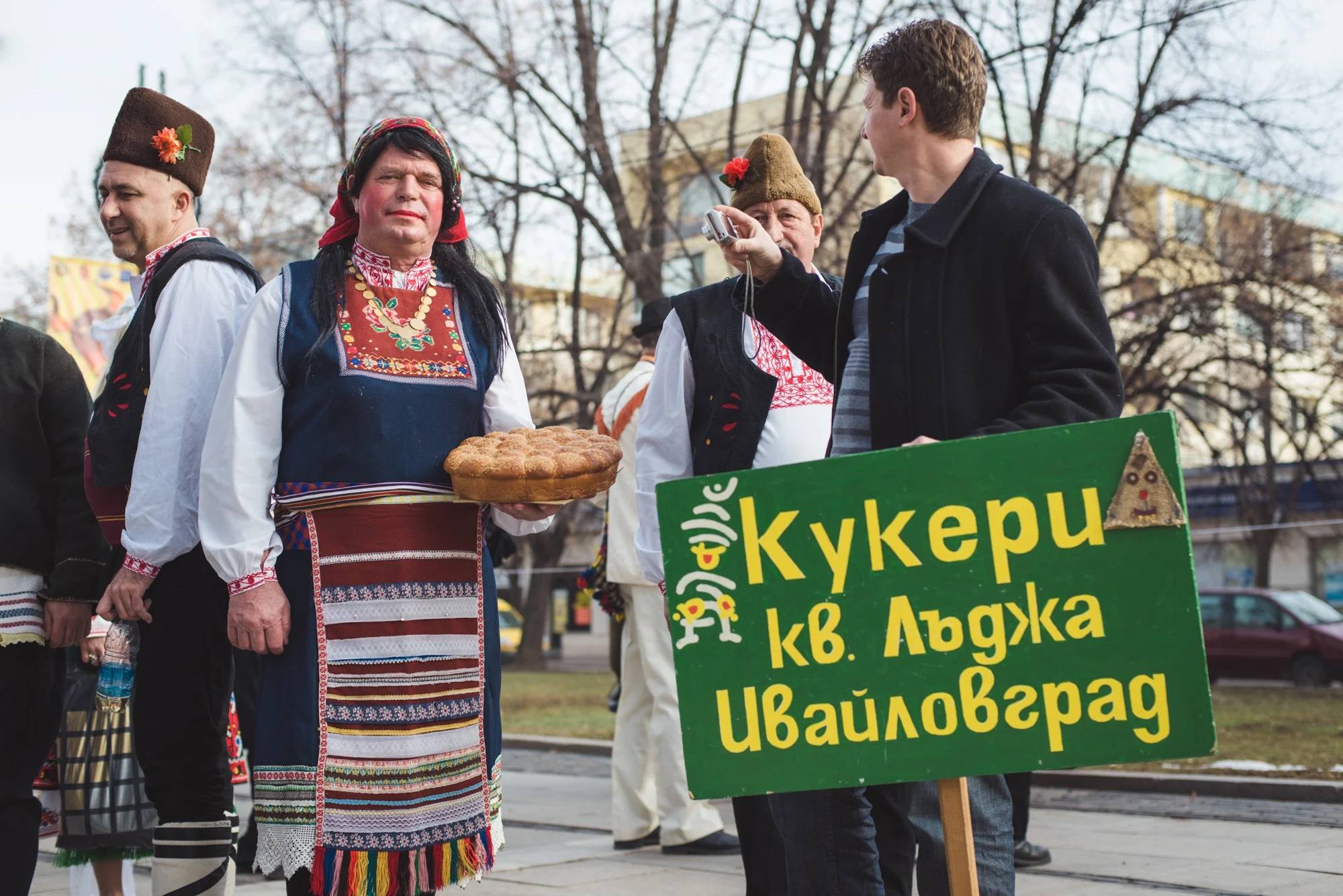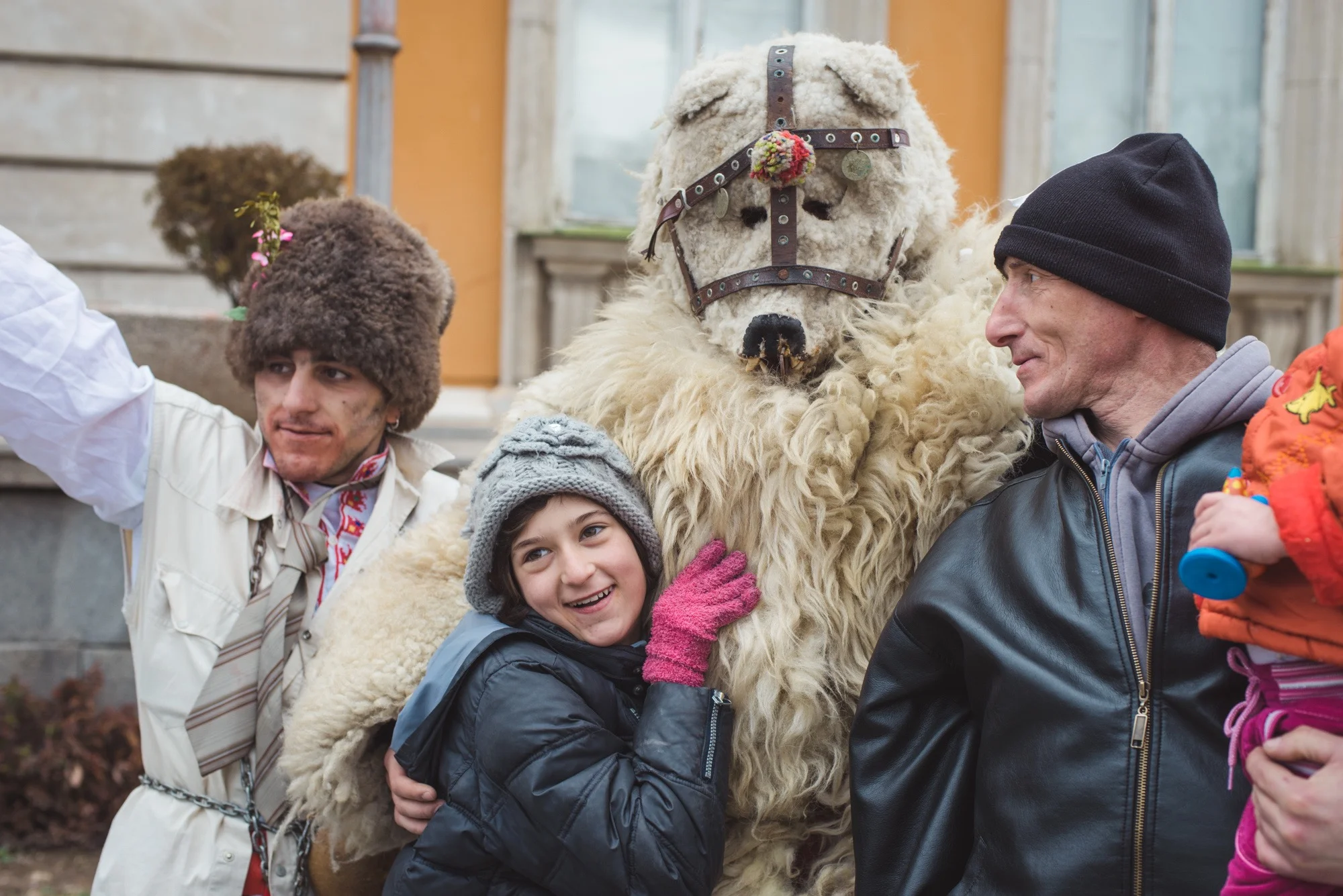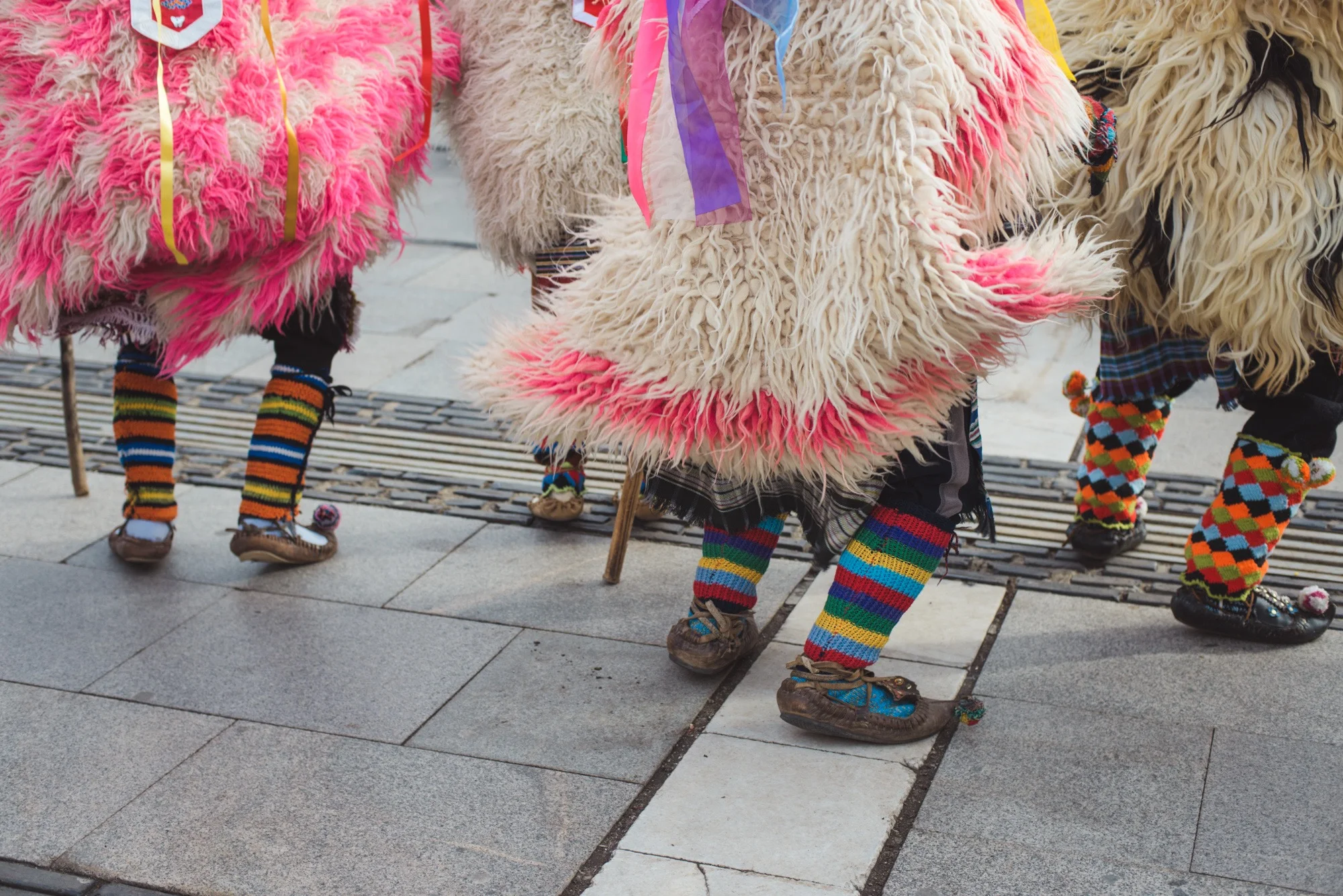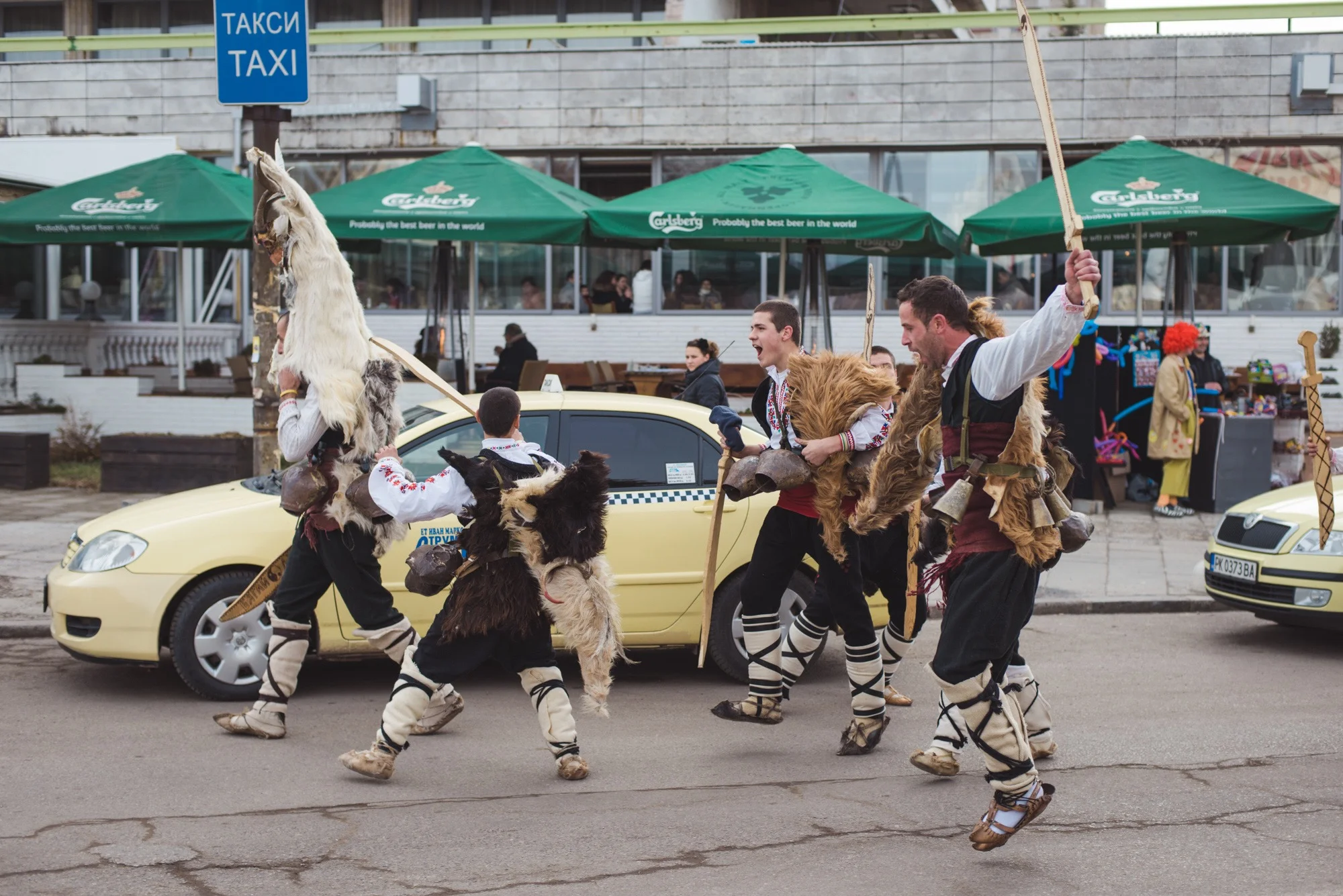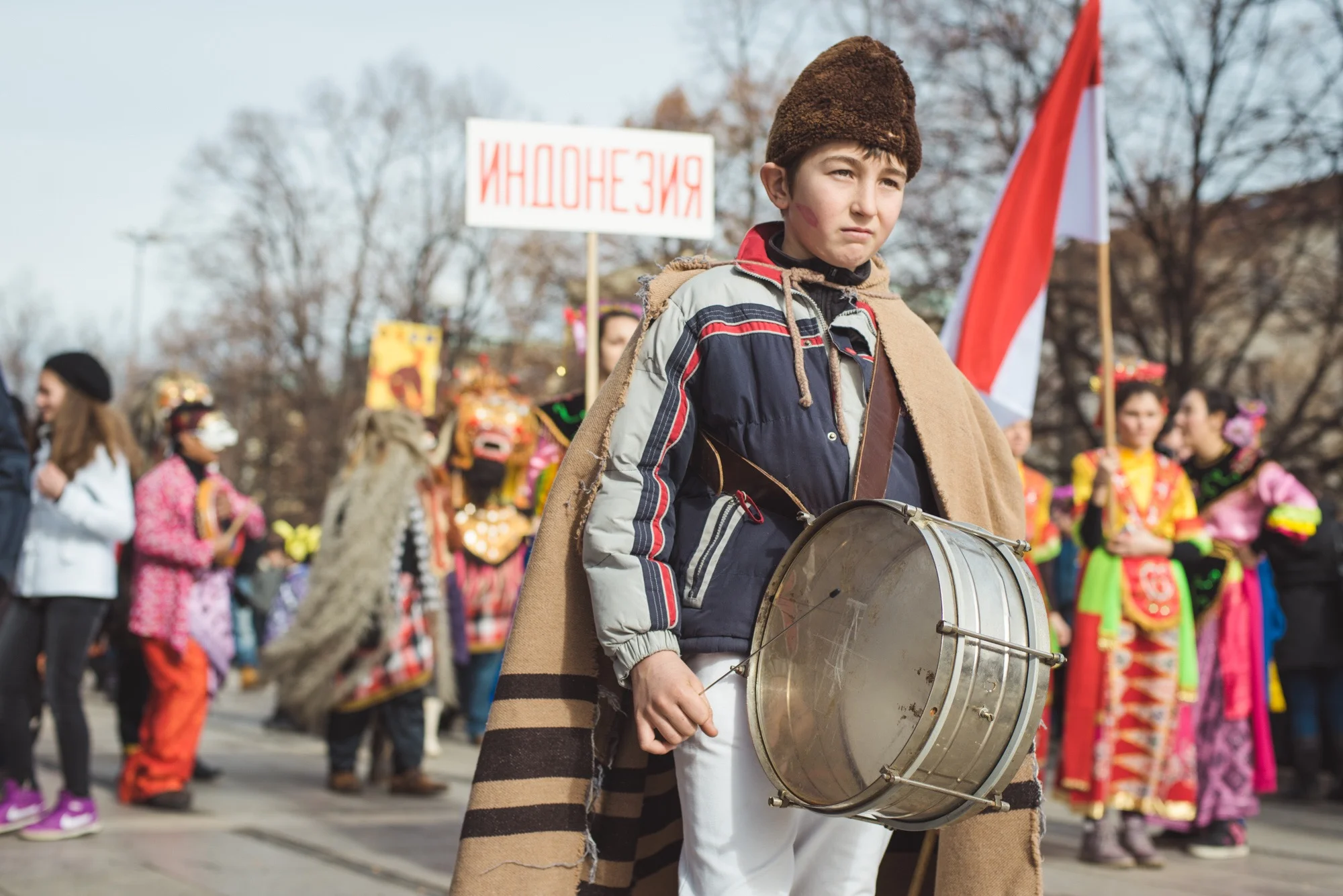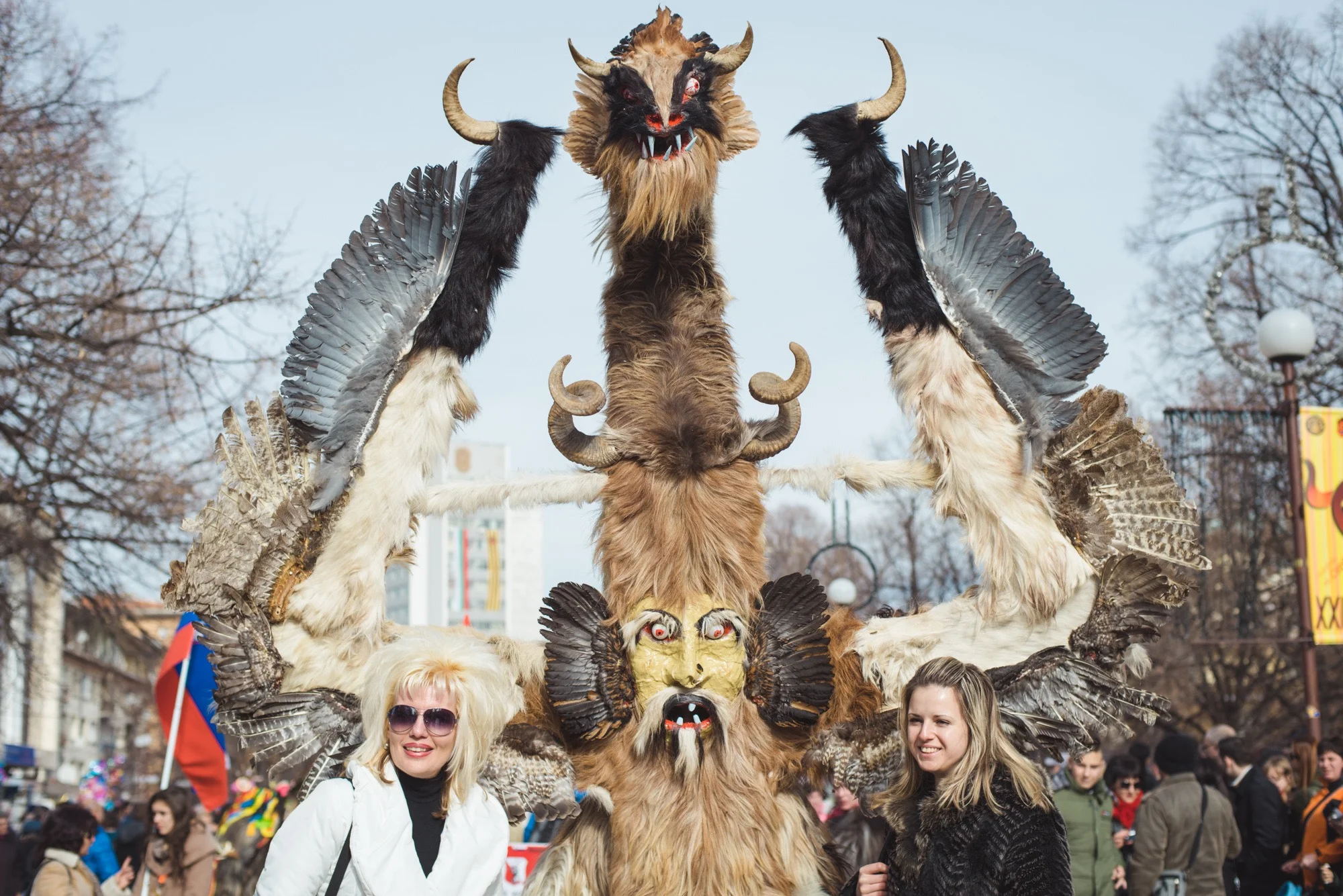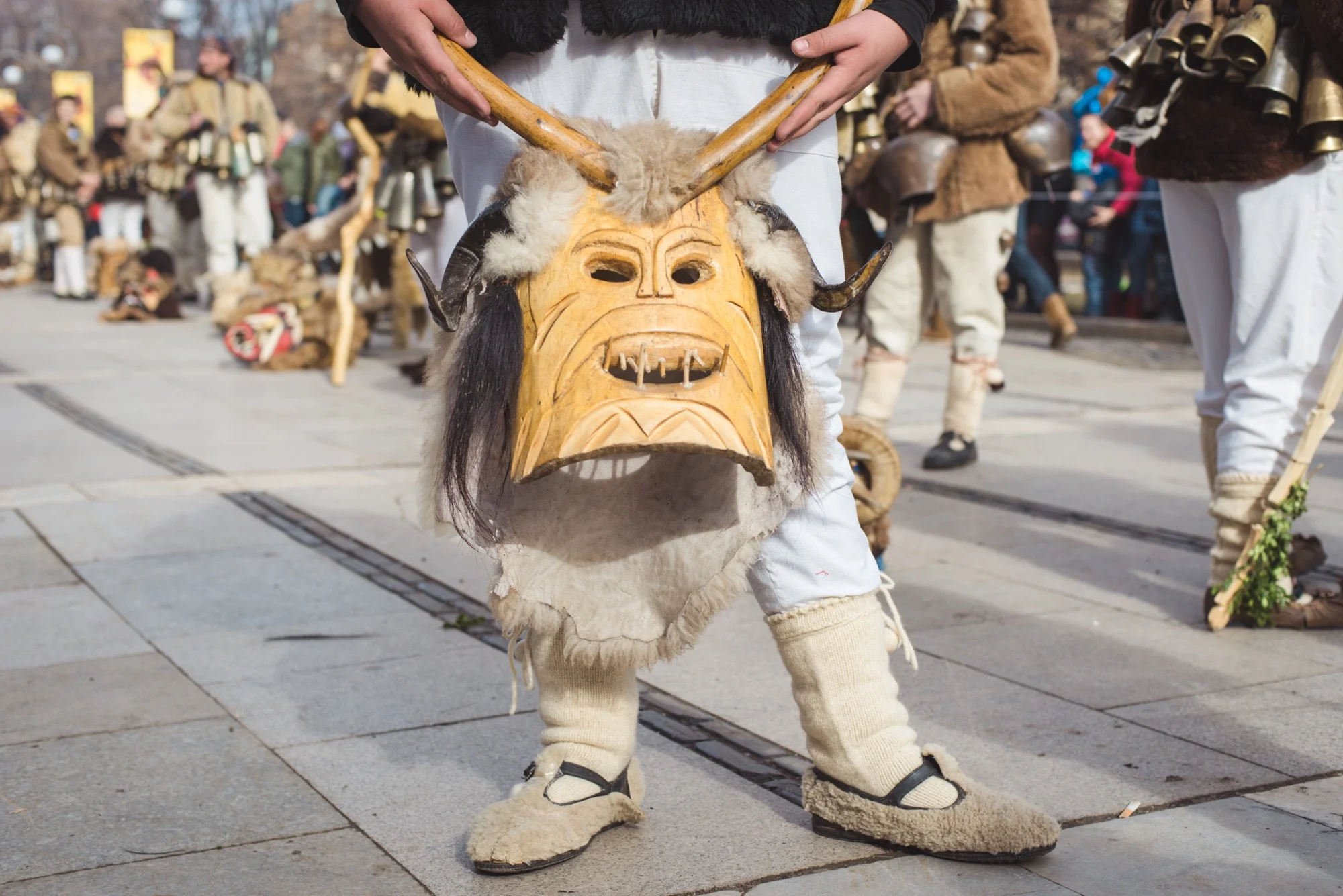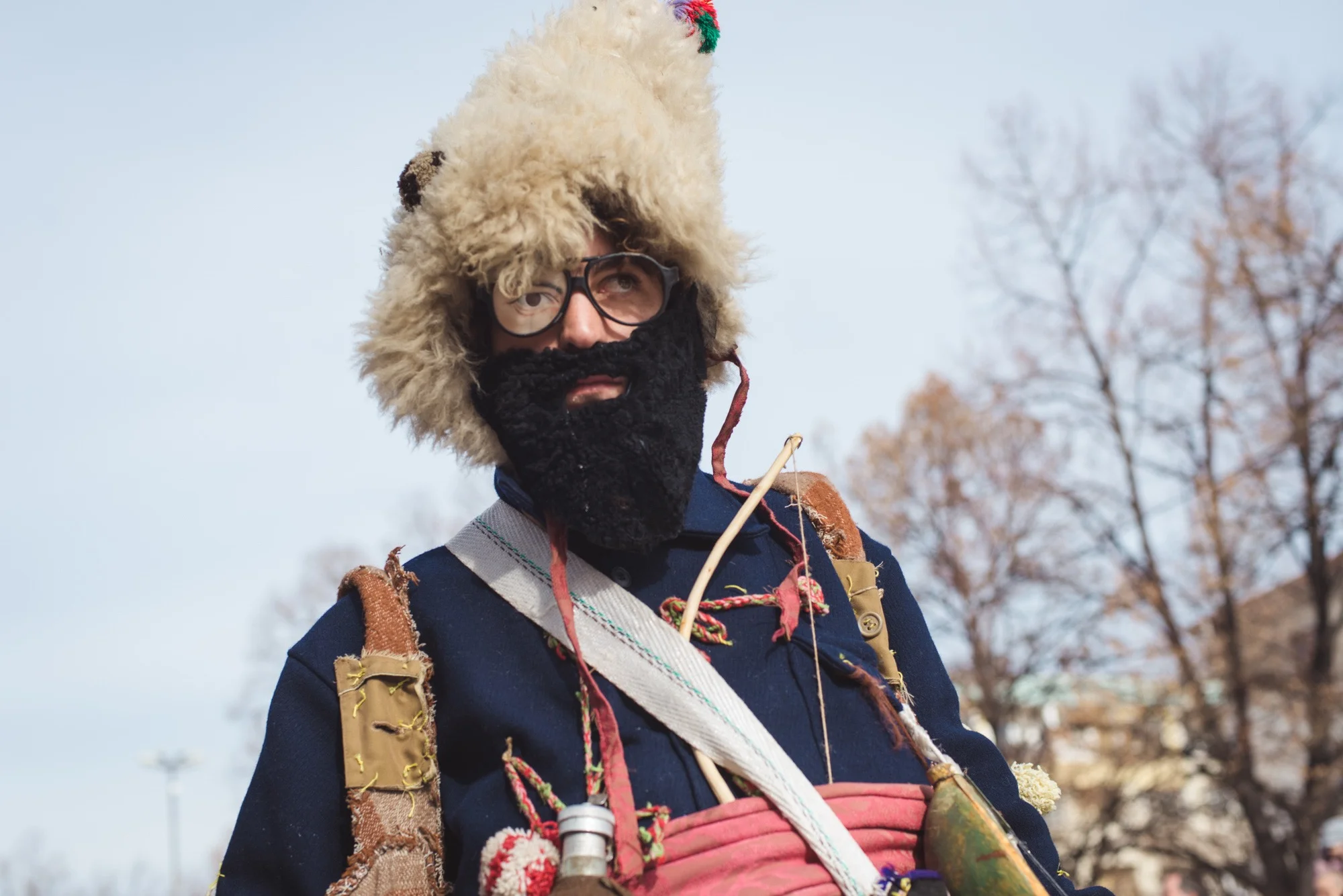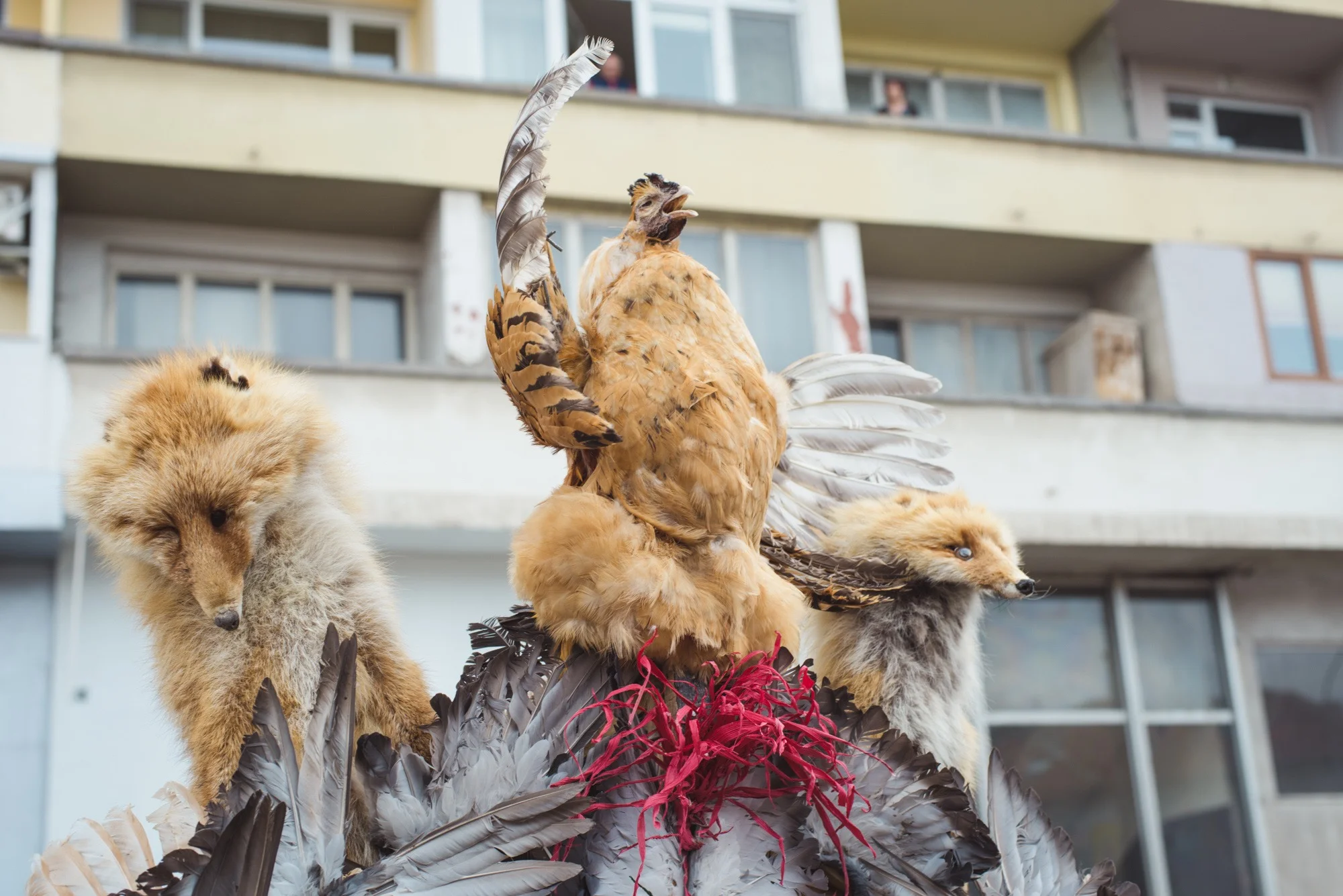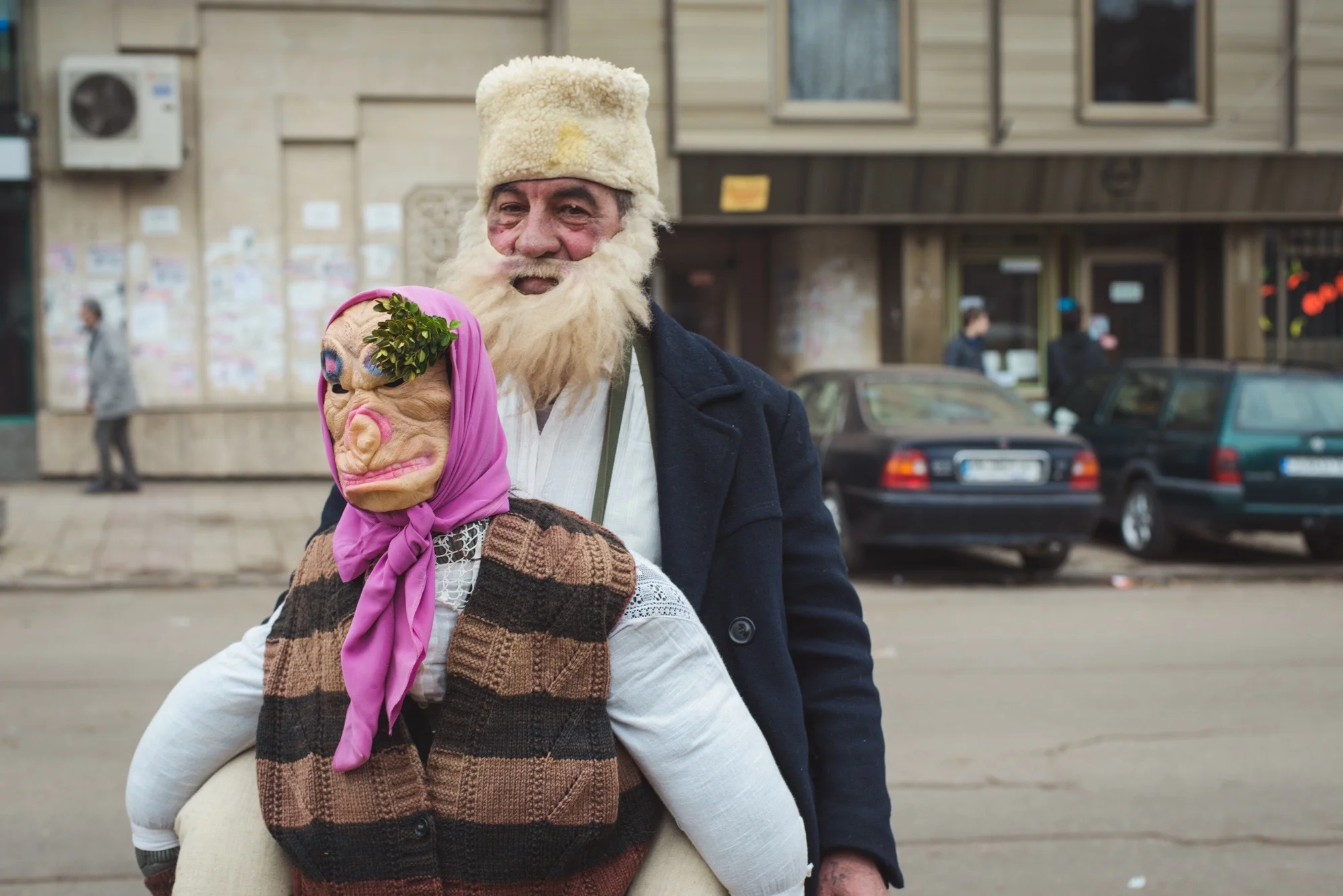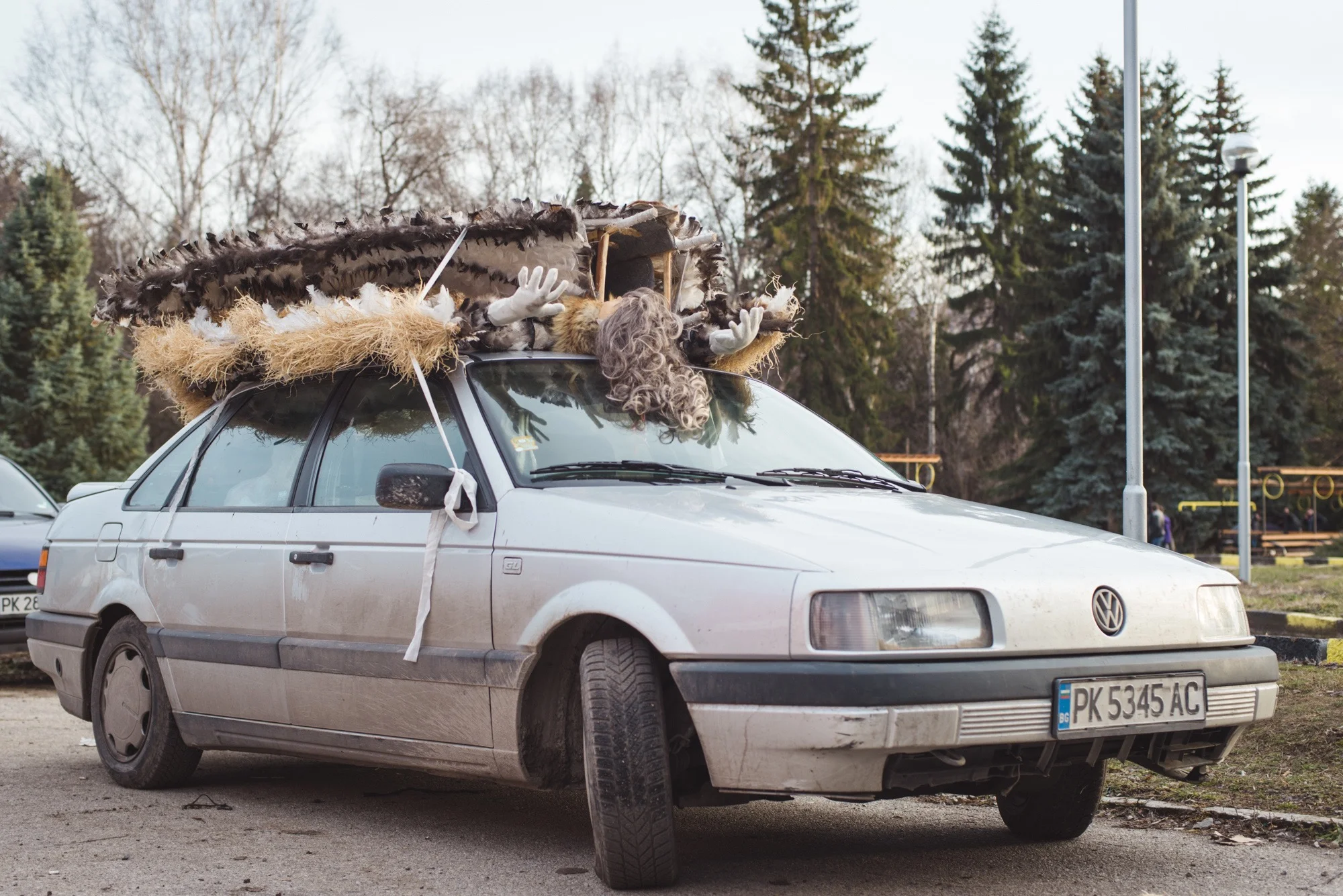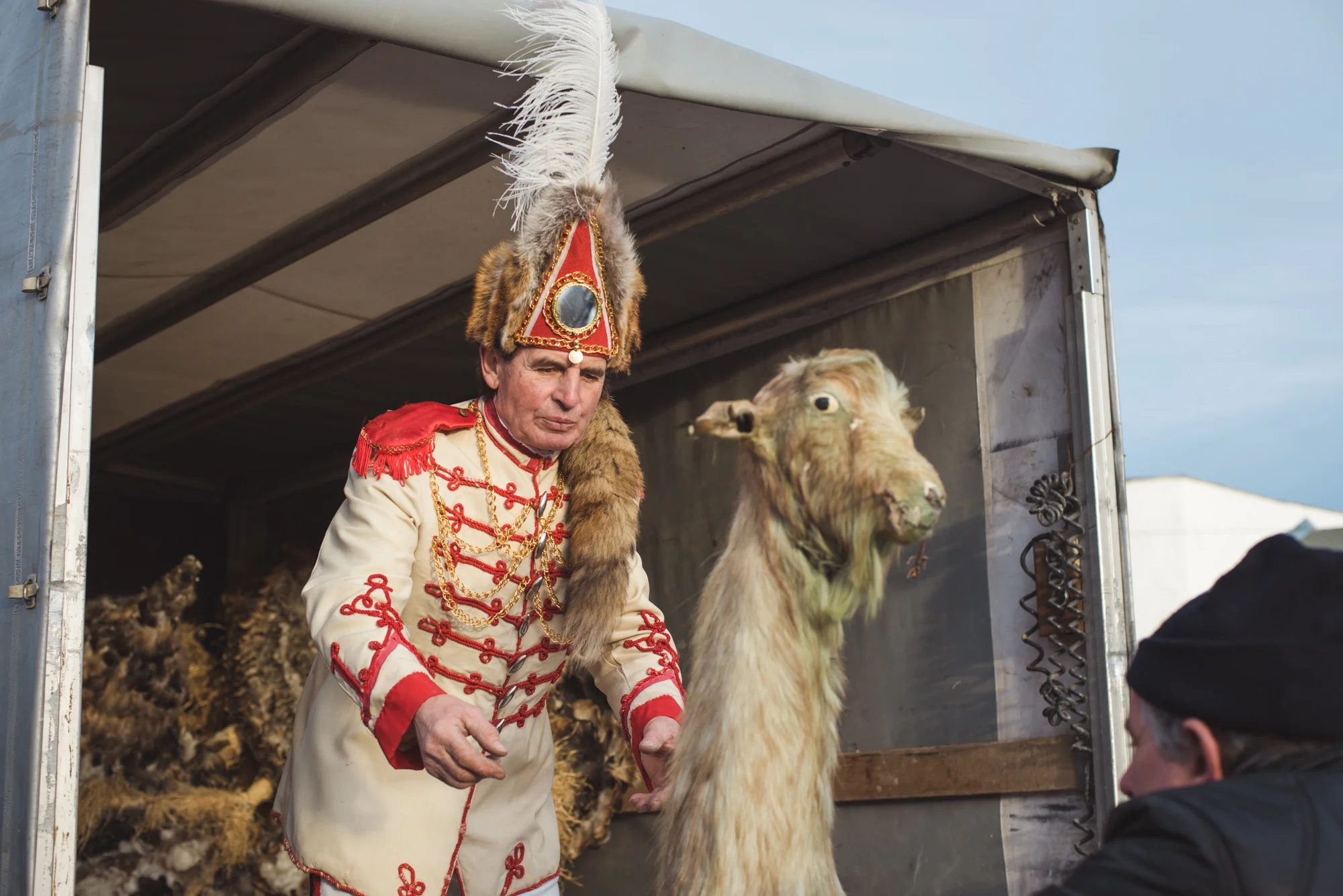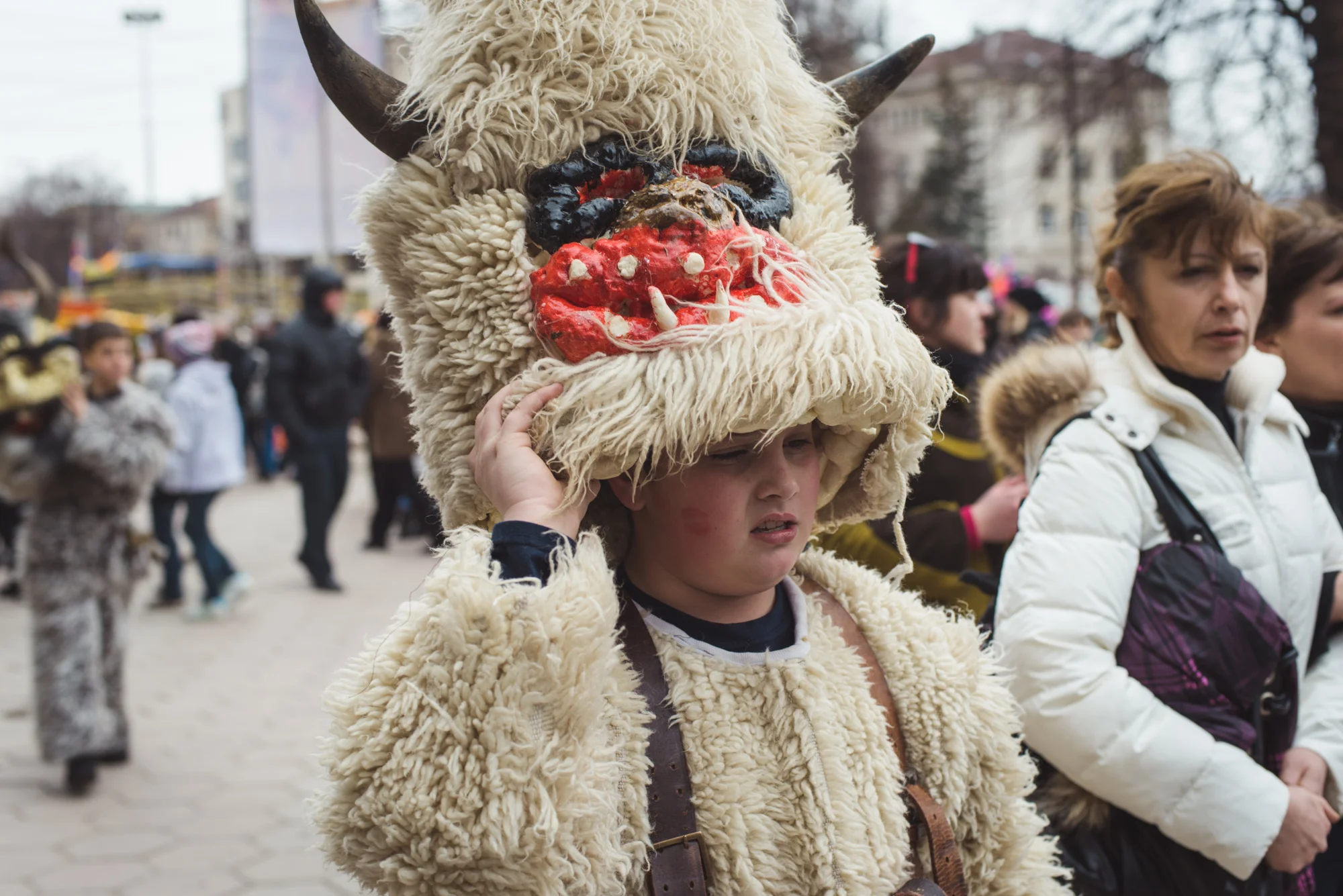Bulgarian Masquerade
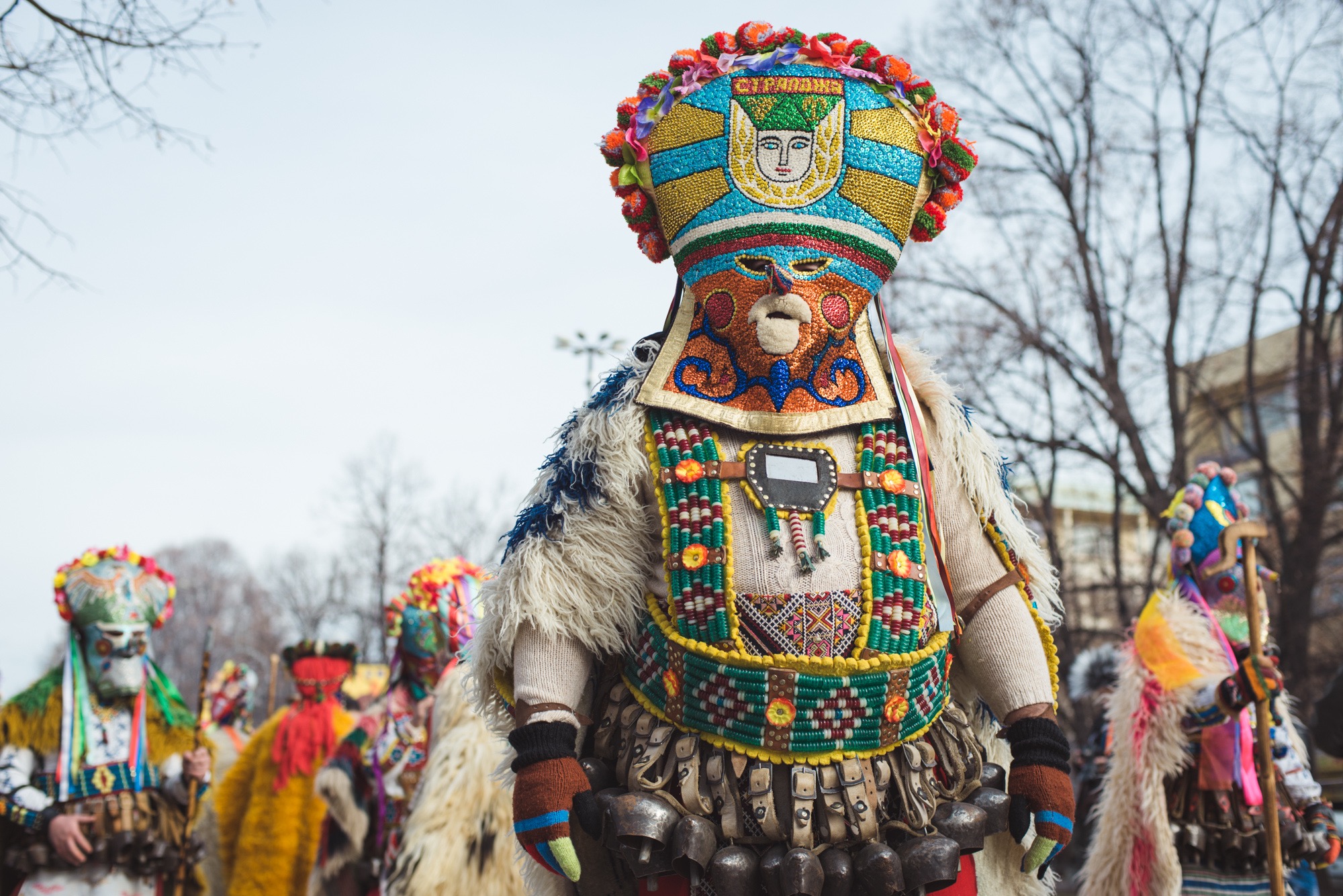
The colours have great significance, red is the most popular choice as it's a symbol of fertility
Every year, in the depths of winter, the sleepy town of Pernik comes alive to the sound and colour of Kukeri. Kukeri are Bulgarian men and women who perform in elaborate costume to scare away evil spirits and usher in the spring. Similar traditions can be found throughout the Balkans and the rest Europe.
These rituals are said to bring good health, good fortune, good harvest and fertility to the participants. They take place every weekend from New Year until Lent. Villages compete for the title of best costume and spend much of the year in preparation.
Their costumes are a riot of wool, feathers, leather, straw, leaves, beads, tassels, military paraphernalia, ribbons, mirrors, goat horns and various animal parts – all crowned with garish carved wooden masks. Large cowbells are attached to the belt to make as much noise as possible. Intoxicating gypsy music fills the air, massive amounts of meat are consumed, and homemade rakia flows through the veins. The atmosphere is something like Black Cat White Cat meets The Wicker Man.
The symbolism has roots in pagan pre-Christian times. Indeed, the same archetypes - the devil, the virgin, the married woman, the old man, the old woman, the bear – can be seen in places as far away as Austria, Sardinia and The Pyrenees. Despite periodic efforts from the authorities to ban them, these traditions are still going strong, and even enjoying a resurgence among young people.
This festival - the International Festival of Masquerade Games – is the biggest Kukeri event in Bulgaria, and attracts performers from all over Europe. The next one takes place from 27th – 29th January 2017.
Photography and words by Christopher Pugmire. You should also check out his blog Dutch Feet.
